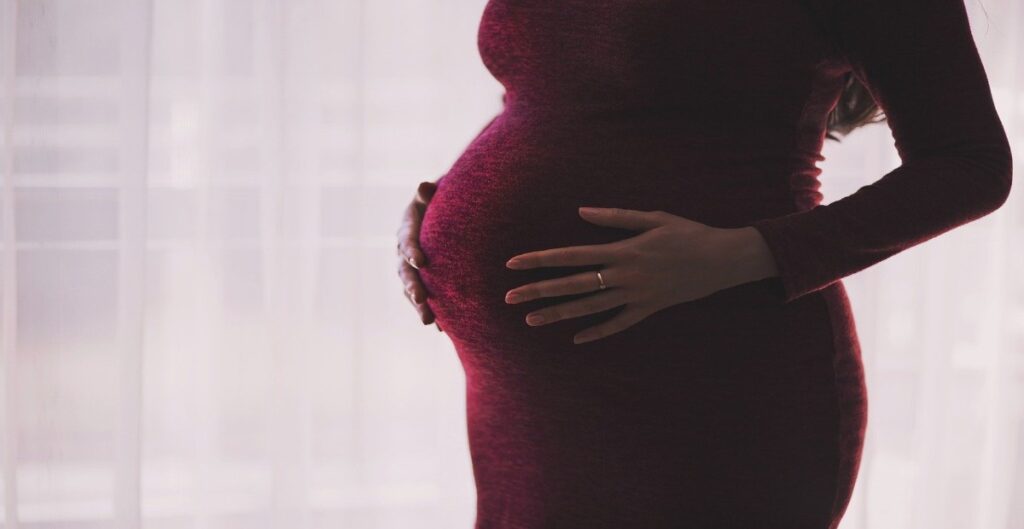
If you are using drugs and/or alcohol, you can still choose adoption and make an adoption plan. It is very important for you to be upfront about your drug and/or alcohol use with your Adoption Counselor and doctors.
Adoption Dreams Come True works with many expectant birth mothers who use drugs and/or alcohol. We are nonjudgmental, well experienced, and have plenty of resources to help you through this difficult time.
Some expectant mothers will feel uncomfortable disclosing to adoptive parents any drug or alcohol use during pregnancy. They worry that their ideal adoptive parents won’t want their baby if they know about drug or alcohol use. While it’s true that some adoptive parents may not be open to drug or alcohol use during pregnancy, many wouldn’t hesitate to adopt a baby with this exposure.
This is because adoptive parents receive a lot of education about drug and alcohol use. They understand the risks of this during pregnancy. While they might prefer that the baby wasn’t exposed to drugs or alcohol during pregnancy, it won’t make them change their minds about adopting.
If you have used drugs and/or alcohol and you are considering adoption, contact Adoption Dreams Come True now by calling 970-493-2557 or 800-281-6690 or via our “Contact Us” form on the website, www.adoptiondreams.org and we will discuss your options at no obligation.

How Drug and Alcohol Use Can Effect Your Baby
You and your baby are connected by the placenta and umbilical cord. Nearly everything that enters your body will be shared with your baby. This means that any drug you use will also affect your baby. A fetus is very sensitive to drugs and can’t eliminate drugs as effectively as you can. Consequently, the chemicals can build up to extremely high levels in the baby’s system and may cause permanent damage.
The risks associated with drug use during pregnancy depend on various factors, including:
- the type of drug used
- the point at which the drug was used
- the number of times the drug was used
In general, however, using drugs during pregnancy can result in the following:
- miscarriage
- stillbirth
- small size
- low birth weight
- premature birth
- birth defects
- sudden infant death syndrome
- drug dependency in the baby
Here are some of the specific consequences of drug use during pregnancy:
- Low birth weight places an infant at a higher risk for illness, intellectual disability, and even death.
- Premature birth increases the risk of lung, eye, and learning problems in the infant.
- Birth defects that often occur due to drug use include seizure, stroke, and intellectual and learning disabilities.
- Fetuses can become dependent on the drug(s) the mother is using and may experience withdrawal symptoms after delivery.
Drug use during early pregnancy can affect the developing organs and limbs of the fetus. Even one episode of drug use during this period can affect the development of your child. In most cases, it results in a birth defect or miscarriage. Drug use later in pregnancy can affect the development of your baby’s central nervous system. After pregnancy, many drugs can pass through breast milk and harm the baby.
Using any type of illegal drug during pregnancy can have a detrimental effect on your child. Please read our information on the most commonly used drugs and how they can affect a developing baby:
Cigarettes/Tobacco
Babies who are exposed to cigarette smoke in utero are more likely to be born premature, have low birth weight, and have weaker lungs than babies whose mothers did not smoke during pregnancy. They are also more likely to die from sudden infant death syndrome (SIDS).
Alcohol
When pregnant mothers drink, so do their babies, which can cause fetal alcohol spectrum disorders (FASDs). FASDs include a variety of physical and mental disabilities as well as emotional and behavioral problems.
Marijuana
There are harmful gases in marijuana smoke that can be passed along to your baby. Smoking marijuana during pregnancy may increase the chances that your baby will have a bowel movement while inside the womb, which can cause early onset of labor and fetal distress.
Amphetamines
If you use stimulants, such as crystal methamphetamine (speed), then you are at increased risk for early placental separation, delivery of a baby with growth problems, and death of the fetus in utero.
Methadone
If you can quit using opiates altogether, it will be best for you and your baby. However, switching to methadone is better than continued heroin use. Methadone is associated with better pregnancy outcomes than heroin, but babies can still experience the narcotic withdrawal syndrome.
Opiates (Narcotics)
Opiates, also known as narcotics, include heroin and methadone. Women who use narcotics during pregnancy are at increased risk for preterm labor and delivery. They are also more likely to deliver a stillborn baby or a baby with growth problems.
Cocaine
Cocaine use during pregnancy increases the risk of miscarriage and stillbirth. It can also cause premature rupture of membranes (water breaks early), early separation of the placenta, and preterm labor.
Heroin
If you use heroin during pregnancy, your baby may be born addicted to the drug. They may experience a severe, life-threatening withdrawal syndrome after delivery.
Other
Other drugs to avoid include medications: Chloromycetin, Cipro, Levaquin, Primaquine, Sulfonamides, Primal, Codeine, Ibuprofen, Coumadin, Klonopin, and Ativan. Always check with your doctor!
Cigarettes/Tobacco
Babies who are exposed to cigarette smoke in utero are more likely to be born premature, have low birth weight, and have weaker lungs than babies whose mothers did not smoke during pregnancy. They are also more likely to die from sudden infant death syndrome (SIDS).
Low birth weight can lead to a variety of other health issues such as: Respiratory distress syndrome, increased risk of infection, low blood sugar, problems with feeding, and difficulty regulating body temperature.
Alcohol
When pregnant mothers drink, so do their babies, which can cause fetal alcohol spectrum disorders (FASDs). FASDs include a variety of physical and mental disabilities as well as emotional and behavioral problems.
Marijuana
To get the full effect of marijuana, smokers need to inhale deeply and hold the smoke in their lungs for as long as possible. There are many harmful gases in marijuana smoke that can be passed along to your baby, increasing the risk for complications. Smoking marijuana during pregnancy may increase the chances that your baby will have a bowel movement while inside the womb, which can cause early onset of labor and fetal distress. Marijuana use can also result in poor growth, behavioral problems, and breathing problems.
Marijuana use should also be avoided while breast-feeding, as the drug can easily be transmitted to the baby through breast milk.
Cocaine
Cocaine use during pregnancy increases the risk of miscarriage and stillbirth. It can also cause premature rupture of membranes (water breaks early), early separation of the placenta, and preterm labor. A baby exposed to cocaine is at a higher risk for:
- stroke
- poor growth
- feeding problems
- deformed limbs
- brain damage
- reproductive or urinary system abnormalities
- sudden infant death syndrome
- long-term behavioral problems
After pregnancy, cocaine can be transmitted to the baby through breast milk, so it shouldn’t be used while breast-feeding.
Opiates (Narcotics)
Opiates, also known as narcotics, include heroin and methadone. Women who use narcotics during pregnancy are at increased risk for preterm labor and delivery. They are also more likely to deliver a stillborn baby or a baby with growth problems. Babies exposed to narcotics in utero are at increased risk for neonatal death.
Heroin
If you use heroin during pregnancy, your baby may be born addicted to the drug. They may experience a severe, life-threatening withdrawal syndrome after delivery. This condition is characterized by the following symptoms:
- high-pitched crying
- poor feeding
- tremors
- irritability
- sneezing
- sweating
- vomiting
- diarrhea
- seizures
Your baby will need special care and medication to treat their withdrawals.
If you share needles, you should be tested for HIV and hepatitis. These infections can also cause complications in your baby.
Like cocaine and marijuana, heroin shouldn’t be used while breast-feeding.
Methadone
If you can quit using opiates altogether, it will be best for you and your baby. However, switching to methadone is better than continued heroin use. Methadone is associated with better pregnancy outcomes than heroin, but babies can still experience the narcotic withdrawal syndrome. Additionally, they may still be at an increased risk for sudden infant death syndrome. For these reasons, it’s best to avoid using methadone during pregnancy. Methadone use of 20 milligrams or less per day is compatible with breast-feeding.
Amphetamines
If you use stimulants, such as crystal methamphetamine (speed), then you are at increased risk for the following problems:
- early placental separation
- delivery of a baby with growth problems
- death of the fetus in utero
Amphetamines shouldn’t be used if you’re breast-feeding.
Donate Now








